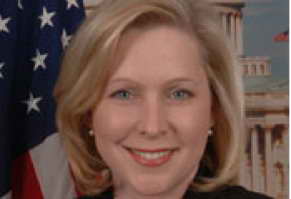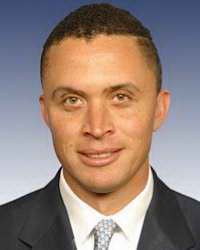February 1, 2010
2/1: Does MA Spell Trouble for NY Dems?
In the wake of Republican U.S. Senator-elect Scott Brown’s win in Massachusetts, a notable proportion — 45% — of registered Democratic voters in New York State say they are worried that a Republican will defeat the state’s Democratic senators running for office in November. This includes 11% of Democrats who report they are very worried about this scenario. A majority, however, are not concerned including 29% who say they are not very worried, and 26% who are not worried at all.
“The Massachusetts race caught the eye of many New York Democrats,” says Dr. Lee M. Miringoff, Director of The Marist Institute for Public Opinion. “Many are worried but not panicking.”
But, how strong is party loyalty? Looking at the overall statewide electorate, a slim majority of registered voters — 51% — don’t think it makes any difference whether a Democrat or Republican is elected to represent New York in the U.S. Senate. 29% report it’s more important to have a Democrat in Washington while 20% think a Republican is the best fit.
55% of Democrats believe a member of their own party would get the job done in D.C., and 51% of Republicans say a GOPer would do the trick. However, notable proportions in both parties report it doesn’t matter from which party a senator from New York should come. 40% of Democrats and 44% of Republicans believe this to be true. Not surprisingly, 73% of non-enrolled voters do not think partisanship matters in choosing the senators from New York.
“All things begin equal, the edge in New York is still with the Democrats when it comes to picking a U.S. senator,” says Miringoff, “although many voters are up for grabs.”
Table: Democrats’ Concern Over Potential Loss of Senate Seat
Table: More Important to Have a Democratic or Republican Senator?
Click Here for Complete February 1, 2010 NYS Poll Release and Tables
Gillibrand Leads Among Democrats, But One-Quarter Undecided
Is Senator Kirsten Gillibrand likely to be the Democrats’ choice to face the Republican challenger in November? When the sitting senator is matched up against former Tennessee Congressman Harold Ford Jr. and labor activist Jonathan Tasini in a hypothetical contest for the Democratic nomination, 44% of Democrats say they support Gillibrand, 27% report they are behind Ford, and 4% state they are backing Tasini. However, a significant 25% of Democratic voters are unsure. This is relatively unchanged from a similar Marist Poll conducted two weeks ago when Gillibrand received the support of 43% of Democrats and Ford garnered 24%.
Looking at region, Gillibrand receives majority support in New York’s suburbs and upstate. However, she does not fare as well in New York City from where more than half of the Democratic vote will come in the primary. Here, Gillibrand receives 37% of the vote, Ford garners 31%, and Tasini nets 3%. 28% of New York City Democrats are unsure. Moving to the city’s suburbs, 52% back Gillibrand, 18% are behind Ford, and 8% support Tasini. Here, too, there is a substantial proportion of undecided Democrats — 23%. Upstate, Gillibrand receives 52%, Ford gets 23%, and Tasini wins over 3%. 22% are undecided.
Table: Gillibrand/Ford/Tasini 2010 Matchup
Favorability of Gillibrand, Ford Drops … More In Doubt
Although Harold Ford has not formally announced his candidacy for U.S. Senate, the jabs between Ford and Gillibrand are well underway. This has created greater uncertainty about both Kirsten Gillibrand and Harold Ford among Democrats statewide.
“Both Gillibrand and Ford lack strong political identities in New York. The fisticuffs between them are forcing each to depend on political goodwill they don’t have,” states Dr. Lee M. Miringoff, Director of The Marist Institute for Public Opinion. “The number of Democrats who don’t have an opinion of each has soared over the past two weeks.”
When it comes to voters’ impression of Senator Kirsten Gillibrand, nearly one-half of Democratic voters — 48% — have either never heard of or are unsure how to rate her. 37% have a favorable view of the senator while 15% have an unfavorable view of her.
Gillibrand’s rating has changed dramatically since Marist last asked voters about her standing in its January 15th survey. At that time, 32% were unsure how to rate her, 48% had a positive impression of her, and 20% had an unfavorable view of her.
Like Gillibrand, Ford’s favorability has declined. Currently, 67% of Democratic voters have either never heard of or are unsure how to rate him. 20% think well of Ford while 13% have an unfavorable view of him. In Marist’s mid-January survey, 52% had either never heard of or were unsure how to rate Ford, 34% viewed him positively, and 14% had an unfavorable impression of him.
Table: Gillibrand Favorability
Table: Ford Favorability
Gillibrand’s Approval Rating Stagnates
One year after her appointment to the U.S. Senate, Gillibrand has failed to convince most voters statewide that she is getting the job done. 24% of New York’s electorate thinks she is doing either an excellent or good job in office while 33% rate the job she is doing as fair, and 18% view her performance poorly. 25% are unsure how to rate her.
Gillibrand’s job approval rating is identical to Marist’s January 15th survey results.
Table: Gillibrand Approval Rating
Gillibrand Trails Pataki, Leads Blakeman
Former New York Governor George Pataki would be a formidable adversary against Kirsten Gillibrand if this year’s general election for U.S. Senate in New York were held today. 49% of registered voters statewide say they would back the Republican Pataki in this hypothetical matchup while 43% would cast their ballot for Gillibrand. 8% are unsure.
This is a change from Marist’s January survey when 45% said they would support Gillibrand, and 42% reported they would back the former governor. 13% were unsure.
While speculation exists about whether the former governor will throw his hat into the ring, Republican Bruce Blakeman has announced he will challenge Gillibrand in the fall. He currently faces an uphill battle against Senator Gillibrand. Blakeman trails with 30% to the senator’s 52%.
Table: 2010 Gillibrand/Pataki Matchup
Table: 2010 Gillibrand/Blakeman Matchup
Pataki Widens Lead Over Ford … Blakeman and Ford in Tight Race
What if Harold Ford receives the Democratic nomination instead of Kirsten Gillibrand? If the election were held today, Ford would lose to Pataki. 52% of registered voters say they would support Pataki while 35% would back Ford. 13% are unsure.
Pataki has widened his lead over Ford in this hypothetical pairing since just two weeks ago. When Marist last asked this question in mid-January, Pataki received 42% of the vote to Ford’s 36%. 22% reported they were unsure.
Ford runs more competitively, however, against Republican Bruce Blakeman. When the two go head-to-head, Ford garners 39% to Blakeman’s 35% with 26% saying they are undecided.
Table: 2010 Ford/Pataki Matchup
Table: 2010 Ford/Blakeman Matchup



